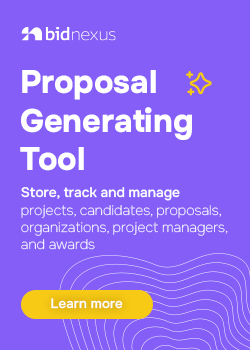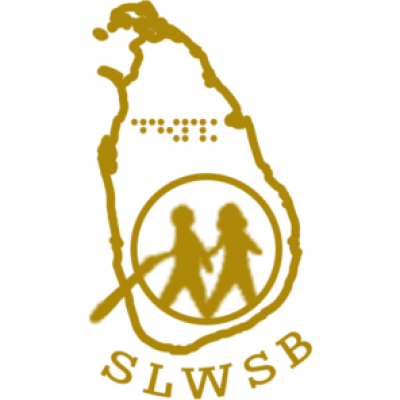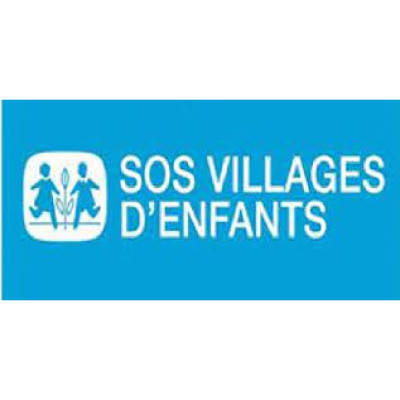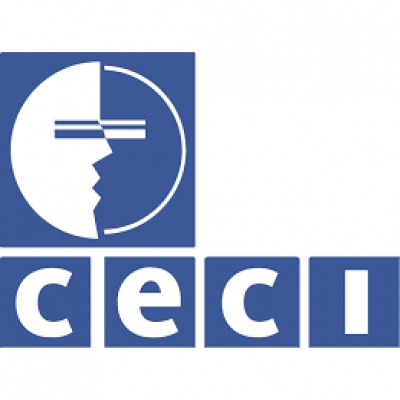Print
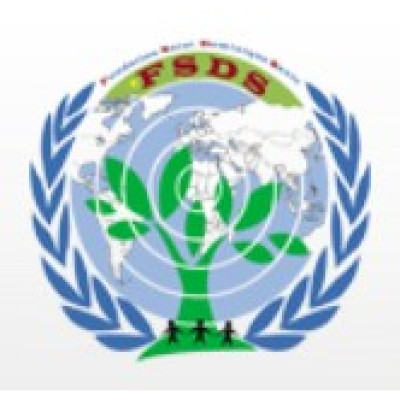
FONDATION SAINT DOMINIQUE SAVIO
General
Jobs • 0
Shortlists/Awards • 0
Pricing strategy • 0
Partners/Competitors • 0
General
Jobs
Shortlists/Awards
Pricing strategy
Partners/Competitors
Details
Legal residence:Rwanda
Organization type:NGO
Funding agencies: Other
Sectors: Agriculture, Civil Society & NGOs, Conflict, Culture, Democratization, Disaster Reduction, Education, Electrical Engineering, Environment & NRM, Food Security, Grants & Grant Schemes, Human Rights, Humanitarian Aid & Emergency, Information & Communication Technology, Media and Communications, Pollution & Waste Management (incl. treatment), Programme & Resource Management, Science & Innovation, Social Development, Water & Sanitation, Youth
Nr. of employees:51-200
Status:
Active
About
FSDS’S ORGANIZATION PROFILE
1. NAME & ADDRESSES:
•
FONDATION SAINT DOMINIQUE SAVIO (FSDS)
•
Type: Humanitarian Non-Profit Organization
•
Location: Republic of Rwanda, Gasabo District, Remera Sector, Street: AVE KG
11
•
Phone number: +250 788 564 259
•
Email address: fsdsrwanda@fsds.org.rw
•
P.O. Box: 1528, Kigali, RWANDA
•
Website: www.fsds.org.rw
•
Contact person: NSENGIYUMVA Patrice
•
Title: FSDS Country Director
•
E-mail : patricensengiyumva@fsds.org.rw
2. DEFINITION:
FSDS is a non-profit humanitarian organization founded by Mr. NSENGIYUMVA
Patrice after the 1994 Genocide against the Tutsi in Rwanda. Its mission is to promote a 2
culture of peace and non-violence, social justice, and human dignity at national, regional,
and global levels.
3. FSDS OPERATIONS:
•
FSDS primarily operates in Rwanda, focusing on both urban and rural areas in 10
districts. It partners with local and international humanitarian organizations that
share its vision and objectives, particularly within the Great Lakes Region of
Central and East Africa.
•
Youth and women with specific needs are the main target groups of FSDS's
activities and initiatives.
•
The Foundation's work is mainly carried out in schools, refugee camps, prisons,
and other faith-based community groups.
4. LEGAL STATUS:
•
The Republic of Rwanda is the home country of FSDS, where it is legally
registered under number 043/2014 with the Rwanda Governance Board (RGB). It
also holds a Tax Identification Number (TIN) 105349389 with the Rwanda
Revenue Authority (RRA).
5. MISSION:
To work for a peaceful and just world where human dignity is upheld.
6. VISION:
To envision, judge, and act towards the bright future we all desire through the effective
and efficient implementation of FSDS’s goals and objectives.
7. OBJECTIVES:
FSDS aims to:
1. Promote equitable education for all.
2. Advocate for dignity and sustainable solutions in humanitarian actions.
3. Safeguard natural, man-made, and human environments.
4. Foster a culture of peace and non-violence through good governance and equitable
justice services.3
8. MEMBERSHIP:
•
According to Article 5 of FSDS’s Statutes, the organization's membership includes
the Founder Member, Adherents, and Honorary Members. These members operate
under the governance of the Board of Directors, elected by the National General
Assembly.
•
The organization has various categories of staff, including permanent staff, part
time employees, consultants, volunteers, and casual staff.
•
FSDS is a member of the United Nations Global Humanitarian Platform and has
been legally registered under the United Nations Global Compact Platform as a
Non-State Business Organization since 2015.
9. COUNTRY DIRECTOR’S ROLE:
•
The Country Director is responsible for the day-to-day coordination and
management of the organization at the country level, working under the
supervision of the FSDS Board of Directors.
•
The Country Director promotes the work of the Foundation, initiates, and manages
programs consistent with the action plan approved by the General Assembly.
•
The Country Director appoints staff after consulting with the Board of Directors
and manages the properties and establishment of the organization.
10. PARTNERSHIP AND FUNDING:
Over the past 10 years, the primary funding agencies and partners of FSDS have included
various United Nations agencies such as UNHCR, UNDP, UNESCO, WFP, etc. The
organization also collaborates with international development partners, particularly:
•
DDC-Regional Cooperation Bureau of the Swiss Embassy
•
TROCAIRE (Ireland)
•
UK Embassy and UK Department for International Development
•
Clean Cooking Alliance FSDS works in close partnership with the Government of
Rwanda through the relevant Ministries and Districts.
11. MAIN PROGRAMS:
•
Eco-Schools Program
•
Access to Education4
•
Environmental Protection
•
Clean energy
•
School Gardening & Feeding
•
Refugees’ Protection
•
Climate Adaptation
•
Climate Justice
•
Culture of Peace building and non-Violence.
12. THE BEST PROGRAMS APPROACHES AND METHODOLOGIES FOR
COP 2025-2030
To secure the necessary funds for the FSDS Country Business Plan 2025-2030, it is
important to employ a strategic, multifaceted approach that includes diverse fundraising
strategies, partnerships, donor engagement, and innovative revenue generation methods
for each of the four key sectors: Education, Humanitarian Response, Energy,
Environment, and Climate Change, and Peace Building and Governance. Below are
approaches, methodologies, and activities tailored to each sector.
A. EDUCATION SECTOR
Approaches and Methodologies:
•
Partnership with Local and International Educational Institutions:
o
Establish strategic partnerships with local schools, universities, and
international academic organizations. These institutions can offer both
funding and collaborative opportunities (e.g., curriculum development,
teacher training programs).
•
Grants and Funding from Donors and NGOs:
o
Apply for education-specific grants from global organizations such as the
Global Partnership for Education (GPE), UNESCO, and USAID.
o
Seek corporate social responsibility (CSR) funding from corporations
committed to education development, such as those in the tech and
telecommunications sectors (e.g., Google, Microsoft, MTN).5
•
Innovation and Technology in Education:
o
Develop and scale digital education platforms, e-learning systems, and
mobile apps to reach more students in remote areas, attracting technology
based funding (e.g., Google.org, Education Above All Foundation).
Key Activities:
•
Launch a Fundraising Campaign for Scholarships and Infrastructure:
o
Mobilize funds for scholarships, teacher training, and the construction of
educational infrastructure. This can involve hosting fundraising events,
writing proposals for grants, and securing pledges from philanthropists and
the private sector.
•
Corporate Sponsorships for Educational Programs:
o
Approach companies to sponsor specific programs such as school buildings,
training workshops, or sustainable educational resources. Companies often
prefer to invest in CSR initiatives that align with their values, such as
education for girls, STEM programs, and vocational training.
•
Crowdfunding for Local Educational Projects:
o
Use online crowdfunding platforms like GoFundMe, Kickstarter, or Global
Giving to raise funds for local educational projects like scholarships for
vulnerable students, or to set up educational materials for underfunded
schools.
B. HUMANITARIAN RESPONSE SECTOR
Approaches and Methodologies:
•
Emergency Relief Funding from International Donors:
o
Secure emergency relief funding from humanitarian agencies such as the
World Food Programme (WFP), UNHCR, Red Cross, and Oxfam, which
fund initiatives focused on disaster relief, refugee support, and crisis
management.
•
Collaborations with Government and International Agencies:
o
Work closely with local Rwandan government ministries, international
donors, and NGOs to access humanitarian response funds. Partnerships with
UNDP and USAID can facilitate financial support for large-scale programs.6
•
Private Sector Partnerships and CSR Initiatives:
o
Forge partnerships with local and international businesses with strong CSR
programs, particularly those focused on community welfare, health, and
disaster management. Engage in disaster preparedness and community
resilience-building programs.
Key Activities:
•
Establish a Humanitarian Relief Fund:
o
Create a dedicated fund for emergency relief and disaster response, making
it easy for donors to contribute. This can include online donation platforms,
phone-based donation systems, or banking partnerships for emergency
responses.
•
Organize Annual Humanitarian Events:
o
Organize fundraising events like gala dinners, charity walks, or online
auctions to support emergency relief operations. These events should raise
awareness about humanitarian crises and invite major donors to commit
large-scale funding.
•
Apply for Humanitarian Grants:
o
Research and apply for humanitarian aid grants from organizations like the
European Civil Protection and Humanitarian Aid Operations (ECHO),
USAID Office of U.S. Foreign Disaster Assistance (OFDA), and
International Federation of Red Cross and Red Crescent Societies (IFRC).
C. ENERGY, ENVIRONMENT, AND CLIMATE CHANGE SECTOR
Approaches and Methodologies:
•
Focus on Climate Adaptation and Mitigation:
o
Target international funds from green funds like the Green Climate Fund
(GCF), Global Environment Facility (GEF), and Adaptation Fund. These
organizations support projects that reduce emissions, promote renewable
energy, and help communities adapt to climate change.
•
Engage in Green Financing Initiatives:
o
Approach impact investors, green bond markets, and corporate investors
interested in funding sustainable projects. Green bonds and climate-focused 7
investments could help raise substantial capital for solar energy, clean water
initiatives, and biodiversity conservation projects.
•
Collaboration with the Private Sector:
o
Form partnerships with private companies involved in renewable energy,
sustainable agriculture, and eco-tourism. Large corporations often have
dedicated budgets for environmental sustainability through their CSR
programs.
Key Activities:
•
Develop and Implement a Green Business Incubator:
o
Create a green business incubator that helps start-ups in renewable energy,
sustainable agriculture, and eco-tourism sectors scale their businesses. This
initiative can attract funding from venture capitalists, impact investors, and
green development agencies.
•
Renewable Energy Projects and Microgrids:
o
Launch renewable energy initiatives such as solar microgrids, biogas
production, or clean cooking solutions. Engage with government funding
from the Rwanda Green Fund (FONERWA) and international environmental
grants from organizations like the UN Environment Programme (UNEP).
•
Organize Public Awareness and Advocacy Campaigns:
o
Host campaigns on climate change and environmental protection to raise
awareness. Fundraising can come from corporations, individual donors, or
foundation grants focusing on sustainable practices.
D. PEACE BUILDING AND GOVERNANCE SECTOR
Approaches and Methodologies:
•
Collaborations with International Peace and Governance Initiatives:
o
Work with organizations like the United Nations Development Programme
(UNDP), African Union (AU), USAID, and European Union that fund
peacebuilding and governance reform in conflict-prone regions.8
•
Support from Foundations Focused on Governance and Justice:
o
Engage with foundations like the Open Society Foundations, Ford
Foundation, and Rockefeller Foundation to secure funding for legal reform,
human rights, and democratic governance projects.
•
Donor Funding for Electoral and Political Accountability Projects:
o
Secure funding for programs that focus on democracy, election monitoring,
and accountability from donors like National Democratic Institute (NDI)
and International Republican Institute (IRI).
Key Activities:
•
Create a Local Governance Capacity Building Program:
o
Establish capacity-building programs for local governments and civil
society organizations. Funding can be sought from UNDP, USAID, and
other organizations that focus on strengthening governance.
•
Promote Mediation and Conflict Resolution Services:
o
Set up peacebuilding programs that mediate local disputes, promote
reconciliation, and foster social cohesion. These programs can be funded by
international peacekeeping organizations and philanthropic entities focused
on conflict resolution.
•
Peace Journalism and Advocacy Campaigns:
o
Fund peace journalism initiatives through partnerships with media
organizations or by applying for grants from agencies like UNESCO and the
EU focused on peaceful conflict resolution and governance transparency.
General Funding Strategies Across All Sectors
•
Multi-Source Fundraising:
o
Develop a diverse funding model that combines grants, corporate
sponsorships, individual donations, and social enterprises. Establish online
donation portals and crowdfunding campaigns for local and international
donors.9
•
Capacity Building for Fundraising:
o
Invest in training FSDS’s team in grant writing, partnership development,
and resource mobilization strategies. This will increase the organization's
ability to access various funding channels.
•
Corporate Partnerships and CSR Initiatives:
o
Engage with corporations for long-term strategic partnerships in each sector.
This could involve co-funding initiatives, employee volunteerism, and the
development of joint programs.
•
Track Record and Transparency:
o
Demonstrate success through impact stories, financial transparency, and
detailed reporting on the results of funded projects. This will build trust with
donors and investors.
To secure funding for FSDS’s Education, Humanitarian Response, Energy, Environment
and Climate Change, and Peace Building and Governance sectors, FSDS must adopt a
comprehensive, multi-channel fundraising strategy. This includes grant applications,
strategic partnerships with donors and businesses, CSR collaborations, impact
investments, crowdfunding, and capacity building. By combining these strategies, FSDS
can mobilize the necessary resources to achieve its Country Business Plan 2025-2030
goals and foster long-term sustainability.
13. GENERAL APPROACHES FOR ALL SECTORS
A. Regular Stakeholder Meetings and Updates:
•
Organize quarterly meetings, forums, or webinars to provide updates on progress,
share challenges, and celebrate successes. Encourage open dialogue and
collaboration in these spaces.
B. Empowerment through Capacity Building:
•
Offer capacity-building workshops for staff, members, and partners to ensure
that all stakeholders are well-equipped to engage in the activities. This includes
skills in project management, resource mobilization, and monitoring and
evaluation.10
C. Inclusive Decision-Making:
•
Ensure that all stakeholders, especially marginalized groups, are included in the
decision-making process. This can be achieved through representative
committees, focus groups, and advisory boards.
D. Incentivizing Participation:
•
Provide recognition and incentives (e.g., certificates, awards, or financial support)
to active participants and stakeholders who contribute meaningfully to FSDS’s
projects and goals.
Active participation from members, staff, and stakeholders is essential for FSDS to
successfully implement its Country Business Plan 2025-2030 across the Education,
Humanitarian Response, Energy, Environment and Climate Change, and Peace Building
and Governance sectors. The strategies and activities outlined above ensure that all
stakeholders are not only included but also feel a sense of ownership and accountability
in the process. By fostering collaboration, capacity building, and continuous engagement,
FSDS can build a strong, sustainable foundation for achieving its objectives while
promoting social cohesion, community development, and environmental sustainability.
To achieve the FSDS’s goal, mission, vision, and objectives for 2025-2030, a holistic
approach that considers input from staff, partners, and beneficiaries is crucial. This
includes gathering feedback and insights from all stakeholders to ensure the
organization's strategies are effective, inclusive, and responsive to the needs of the
communities it serves. Below are some inputs, comments, suggestions, and
recommendations for FSDS’s success.
1. Staff and Leadership Engagement
Inputs and Recommendations:
•
Enhanced Internal Communication:
o
Recommendation: Improve internal communication by organizing regular
team meetings, using collaborative platforms (e.g., Slack, Microsoft Teams),
and encouraging transparency across all departments. Regular
communication ensures staff engagement, knowledge sharing, and
alignment with FSDS’s strategic goals.
•
Staff Capacity Building:
o
Input: Invest in continuous professional development for staff members.
This includes leadership training, technical skills development, and 11
organizational management. By equipping staff with up-to-date knowledge
and skills, FSDS can improve operational efficiency and adaptability to
changing contexts.
o
Recommendation: Implement a mentorship or peer-to-peer learning system
within the organization to promote leadership development from within.
•
Performance and Accountability Systems:
o
Recommendation: Strengthen internal monitoring and evaluation systems
to measure staff performance against key performance indicators (KPIs) and
ensure accountability. These systems should allow staff to provide feedback
on leadership and the organization’s performance.
14. PARTNERSHIPS AND EXTERNAL STAKEHOLDERS
Inputs and Recommendations:
•
Diverse Partnership Models:
o
Input: FSDS should diversify its partnerships beyond traditional donors and
governments to include private sector, philanthropic foundations,
academic institutions, and local community organizations. These diverse
partnerships can bring new perspectives, innovative solutions, and
additional funding opportunities.
o
Recommendation: Create a partnership engagement plan that includes
collaboration with international organizations, private companies, and
local leaders to expand the impact and reach of FSDS’s programs.
•
Joint Program Design and Execution:
o
Input: Collaborate with partners in the co-design of programs, ensuring
alignment with both local needs and the strategic priorities of FSDS. This
ensures that initiatives are context-specific, relevant, and sustainable.
o
Recommendation: Regular partner reviews should be conducted to assess
program implementation, adjust strategies, and enhance collaboration.
Establish formal agreements that outline roles, responsibilities, and
funding commitments for all partners.
•
Donor Engagement and Diversified Funding:
o
Recommendation: FSDS should pursue a multi-channel fundraising strategy
that includes grants, corporate sponsorships, crowdfunding, and impact 12
investments. This will reduce dependence on a limited number of funding
sources and improve the organization’s financial sustainability.
15. BENEFICIARIES AND COMMUNITY INVOLVEMENT
Inputs and Recommendations:
•
Community-Led Program Design:
o
Input: Programs and initiatives should be designed based on the needs and
priorities of local communities. This requires involving beneficiaries in
needs assessments, consultations, and design stages of projects. Local
communities should actively participate in identifying challenges, solutions,
and outcomes.
o
Recommendation: Conduct community forums, focus group discussions,
and surveys to ensure programs are contextually relevant and will have a
lasting impact. Community advisory boards can also be created to provide
ongoing guidance and feedback.
•
Building Community Ownership:
o
Recommendation: Foster a sense of ownership among beneficiaries by
involving them in implementation, monitoring, and evaluation of projects.
When people feel that a program is “theirs,” they are more likely to engage
fully and ensure its success.
o
Input: Establish local committees that take responsibility for program
implementation and sustainability, ensuring that the community has the
leadership capacity to manage projects beyond FSDS’s direct involvement.
•
Feedback Mechanisms for Continuous Improvement:
o
Recommendation: Implement robust feedback mechanisms where
beneficiaries can voice concerns, provide input on program quality, and
share suggestions for improvement. Feedback channels such as community
meetings, SMS surveys, or online platforms should be accessible and
regularly reviewed.
o
Input: Ensure that there is feedback from marginalized groups (e.g., women,
youth, people with disabilities) to ensure their voices are represented in the
programs.
o13
16. STRATEGIC PLANNING AND ORGANIZATIONAL STRUCTURE
Inputs and Recommendations:
•
Clear and Adaptable Strategic Framework:
o
Input: FSDS ensures that its strategic plan is dynamic and can evolve based
on emerging trends, new opportunities, and feedback from stakeholders.
While FSDS’s mission and vision remain constant, strategic goals should be
adaptable to address changing contexts (e.g., new technologies, economic
shifts, or evolving environmental challenges).
o
Recommendation: Build a monitoring and evaluation framework that
allows FSDS to track progress against its goals, assess impact, and adjust
strategies when necessary.
•
Sustainable Financial Model:
o
Recommendation: FSDS should create a sustainable financial model that
includes a mix of donor funding, corporate partnerships, earned income, and
social enterprises. FSDS should regularly assess its financial viability and
explore innovative approaches such as social impact bonds or green bonds
to diversify revenue streams.
o
Input: The organization should also invest in capacity building for its
finance team to ensure effective management of funds, compliance, and
financial transparency.
•
Decentralized Decision-Making:
o
Recommendation: FSDS should encourage decentralized decision-making,
giving more autonomy to regional offices or program heads. This can
improve efficiency and allow local offices to respond more quickly to
specific needs.
17. ADVOCACY AND PUBLIC RELATIONS
Inputs and Recommendations:
•
Branding and Communication Strategy:
o
Recommendation: FSDS should develop a comprehensive communication
and branding strategy that promotes its mission and impact. Effective
storytelling, social media engagement, and content creation (e.g., videos, 14
blogs, reports) can increase visibility and attract more stakeholders and
funding partners.
o
Input: FSDS should strengthen its relationship with the media and develop
advocacy campaigns to raise awareness of its programs, focusing on specific
themes such as education, climate change, human rights, and peace building.
•
Policy Advocacy and Research:
o
Recommendation: FSDS should undertake policy advocacy efforts to
influence local and national policies in its areas of focus (e.g., education,
climate action, peace building). Research-based advocacy will provide
evidence that supports FSDS’s initiatives and strengthens its voice in policy
discussions.
18. MONITORING, EVALUATION, AND LEARNING (MEL)
Inputs and Recommendations:
•
Comprehensive MEL Framework:
o
Recommendation: FSDS should establish a robust monitoring, evaluation,
and learning framework that tracks not only the outputs of its activities but
also the long-term outcomes and impact. This should be coupled with
regular feedback loops to inform program adjustments.
o
Input: Use data-driven insights to improve program design and ensure
interventions are achieving their intended goals. The MEL system should be
transparent and accessible to all stakeholders, ensuring that lessons learned
are shared internally and externally.
•
Data and Knowledge Sharing:
o
Recommendation: FSDS should foster a culture of learning within the
organization by sharing lessons, success stories, and challenges faced in
each program. Data sharing platforms and learning communities can
promote collaboration between teams and external stakeholders.
18. USEFUL RELEVANT WEBSITES:
✓ www.mineduc.gov.rw
✓ www.minema.gov.rw
✓ www.minijust.gov.rw
✓ www.minagri.gov.rw✓ www.unhcr.org/Rwanda
✓ www.unesco.org/Rwanda
✓ www.wfp.org/Rwanda
✓ www.unicef.gov.rw/Rwanda
✓ www.rema.gov.rw
✓ www.fonerwa.gov.rw
✓ www.fee-international.org
✓ www.worldwithoutwars.org
✓ www.pressenza.com
✓ www.reb.rw
Conclusion
To successfully achieve its mission, vision, and objectives by 2030, FSDS must focus on
collaborative engagement, community ownership, continuous learning, and effective
resource mobilization. By incorporating the inputs and suggestions from staff, partners,
and beneficiaries, FSDS will create an inclusive and responsive organization that is well
positioned to address the key challenges facing Rwanda and its people in the Education,
Humanitarian Response, Energy and Climate Change, and Peace Building and
Governance sectors.
Prepared by: NSENGIYUMVA Patrice
Title: FSDS Country Director
Top partners

Top competitors


Similar Companies
By Sectors and Organization Types
Country:
Sri Lanka
Awards:
0
Jobs:
0
Country:
USA
Awards:
0
Jobs:
0
Country:
Dem. Rep. Congo
Awards:
0
Jobs:
0
Country:
Burkina Faso
Awards:
0
Jobs:
0

